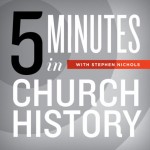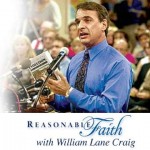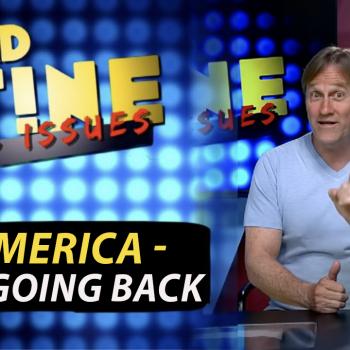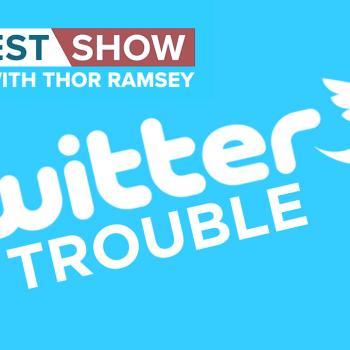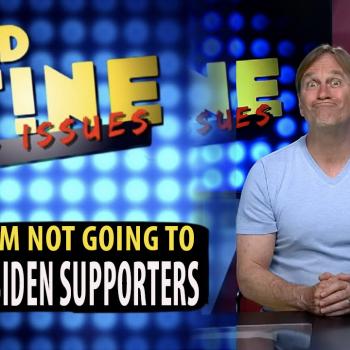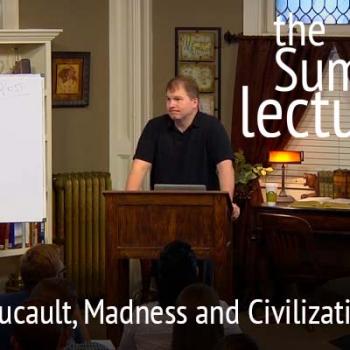
The Bible did not fall down from heaven as a sourcebook for spirituality, personal life-lessons, or even as a collection of doctrines. Rather, it should primarily be understood as a report of an unfolding drama that took place in real space and time history that culminates in the life of a particular Jew born in Bethlehem in the days of Caesar Augustus.
If this story isn’t true, it should be completely rejected and set aside. But if it is true, then we will find ourselves caught up in the greatest story ever told. “Finding Yourself in God’s Story” is our theme on this episode of the White Horse Inn.
“The Christian faith is not only true, but it’s also beautiful and good. That’s the thing about a drama that a doctrine by itself cannot manifest. A doctrine can be proved as true but you separate it from the drama, it doesn’t grip you as beautiful and good. There are good stories and bad stories. There are even — sometimes I’ll read a story or see a movie where it’s kind of a horrific drama that’s unfolding. But it’s true to reality. There’s something about it that grips me because it’s actually true to reality. That’s different from saying the cat is on the mat.
“There’s something in the drama of redemption that’s compelling to me, that’s persuasive. I think part of why a lot of people can’t connect with Christianity, though they’ve been raised in churches their whole life, is because it may have been presented as doctrine. It may have been presented as eight-hour praise services, praise-athons. It may have been 18,000 hours of homeroom where you’re doing discipleship courses. But the one thing it wasn’t was — here’s the greatest story ever told unfolding from Genesis to Revelation. And so, they don’t think Christianity is good. They don’t think it’s beautiful. They don’t care whether it’s true, then they begin to look for another story to ground their lives.” – Michael Horton
Term to Learn:
“Popular Postmodernism as Most-Modernism”
Most often postmodernism is simply a code word for something new, a supposed break with the past (modernity) and the dawn of a radically new era. Of course, a more modern description of an era could hardly be found, as academic postmodernists will be the first to point out. On a host of points (notions of tradition, language, the critique of autonomy, progress, presence and absence, and so on), thinkers actually classed as postmodern have a lot to teach us about what popularizers of postmodernism fail to recognize is little more than “most-modernism.”
There is just too much of the modern in the postmodern to be able to speak in sweeping terms of a major paradigm shift in culture. Postmodernism, or whatever one wishes to designate our brief moment in history, is the culture in which Sesame Street is considered educational; sexy is the term of approbation for everything from jeans to doctoral theses; watching sitcoms together at dinner is called family time; abortion is considered choice; films sell products; and a barrage of images and sound bites selected for their entertainment and commercial value is called news. This general trend in culture translates into hipper-than-thou clubs passing for youth ministry, informal chats passing for sermons, and brazen marketing passing for evangelism, where busyness equals holiness, and expository preaching is considered too intellectual. This trend can account in part for homes in which disciplined habits both of domestic culture and instruction in Christian faith and practice give way to niche marketing and churches becoming theaters of the absurd.
This take on postmodernism is hardly new. Marxist intellectual Alex Callinicos’ illuminating analysis of postmodernism concludes that it is little more than the result of the self-obsessed “flower children” of the revolutionary ’60s now taking their place in the professional “new middle class.” In other words, postmodernism and boomer go hand in hand. Fellow Marxist Terry Eagleton adds, “Radicals, for example, are traditionalists, just as conservatives are; it is simply that they adhere to different traditions.” This appraisal fits perfectly with what I see in my experience of contemporary evangelicalism. Postmodernism is the new code word for mission, a new way of enforcing not just change but particular changes that have particular ideological assumptions. One can even detect a note of fatalism in challenges that verge on bullying: “Get with it or get left behind.” This is just the way things are now, so we had better adapt. Sweeping endorsements or sweeping denouncements make for light work.
(Adapted from Michael Horton, “Better Homes & Gardens,” The Church in Emerging Culture, pp.105–111)
(This podcast is by White Horse Inn. Discovered by e2 media network and our community — copyright is owned by the publisher, not e2 media network, and audio is streamed directly from their servers.)



